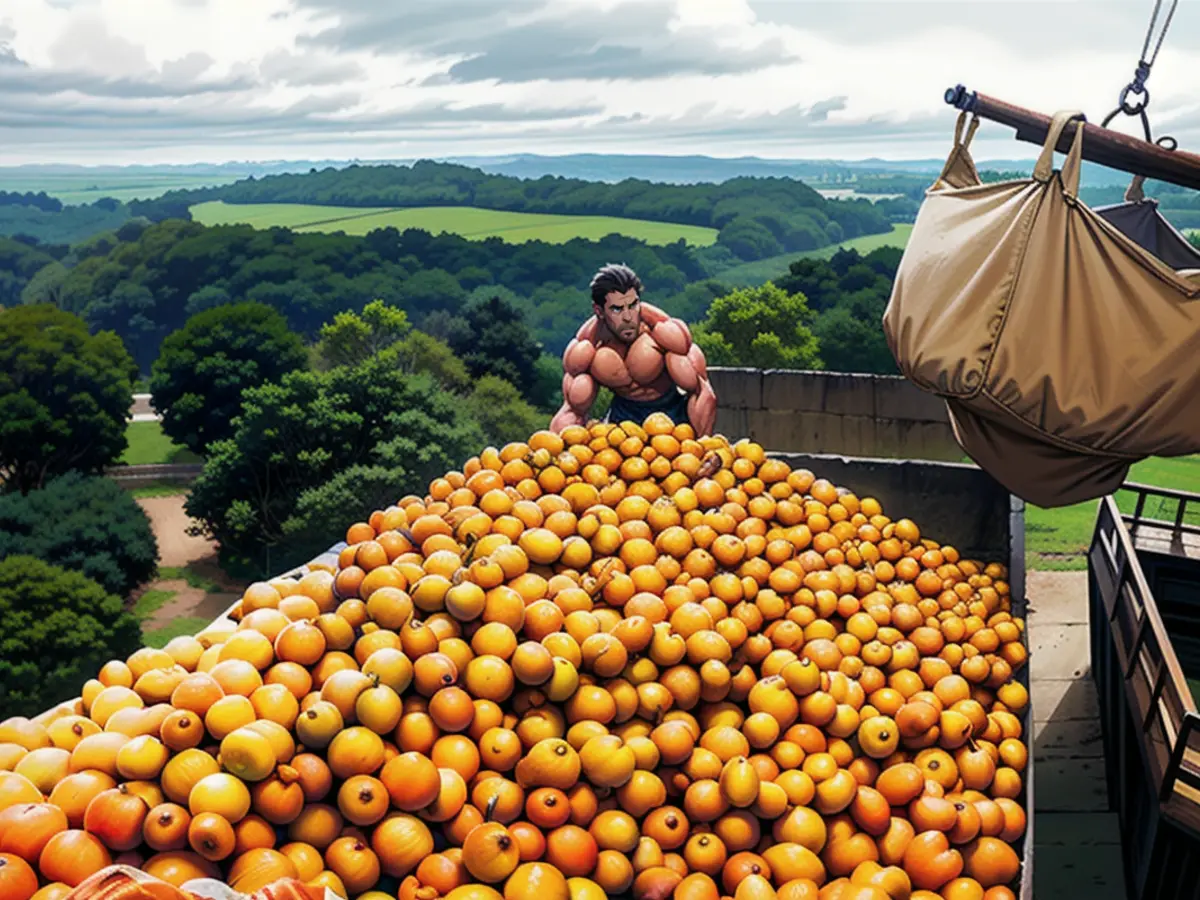The cost of orange juice skyrockets in the stock exchange. [ ]
This year's harvest in Brazil is as terrible as it's been for many decades. The cost of orange juice is climbing rapidly. The industry is searching for alternative ways to maintain the cost of the juice despite the increase.
Orange juice's price in supermarkets has risen by roughly 50% in the past two years, as reported by the Federal Statistical Office. This could just be the start. At ICE, the New York futures exchange this week, the cost for orange juice futures reached a new high of $4.87 per pound. The course has nearly doubled in the last year and quadrupled in three years.
Futures are contracts where market players - in this scenario, orange cultivators and juice manufacturers - can protect themselves against potential price swings in the future. The price spike reflects the anticipation that the situation would deteriorate this season and orange juice would become scarce. The cause behind this is Brazil. The nation is the world's largest orange producer and provides 80% of the concentrate used for the orange juice consumed in Europe.
Brazil is predicted to witness a decrease in production of around 25% this year in comparison to the prior year - about 1.7 billion litres less. This would be the worst harvest since 1988. For several years, the yellow dragon disease has been spreading across orange farms in Brazil. At the same time, Brazil's growing areas are being affected by exceptionally high temperatures and drought. "We've never seen anything like this before," the chairman of the International Fruit and Vegetable Juice Association, Kees Cools, is quoted as saying in the "Financial Times."
Subpar harvests for apples, too
Since the last few harvests were not up to standard, the industry's stockpiles are running low. At the same time, there's little hope for improvement anytime soon. The transition required to prepare the Brazilian citrus industry for the long-term consequences of climate change will take years and be quite expensive.
Juice producers are preparing for more price rises. "Orange juice is likely to keep increasing in price," states the vdf industry association's managing director, Klaus Heitlinger. However, some companies are seeking alternative methods. Manufacturer Eckes Granini changed its 100% fruit content for its Granini brand orange juice to a 50% nectar, thus maintaining the cost of the concentrate. Yet, consumer advocates were outraged.
Different companies are considering moving to mandarins for production. They are more resistant to the increasingly severe climate. The only long-term option for the industry could be using other fruit varieties if you don't wish to harm the "naturalness and image of the product," says association chairman Kees Cools. But, a homegrown substitute is only available to German manufacturers to a certain extent. There are also shortages for apple juice: The previous year's lowest juice yield since ten years was due to a poor harvest.
Read also:
The soaring food prices, including orange juice, are heavily influenced by climate change, as noted by the food industry. Brazil, being the world's largest orange producer, is expected to have a 25% decrease in production this year due to the yellow dragon disease and drought, leading to higher commodity prices and potential scarce supply.
Given the anticipated climate change impacts on fruits like oranges in Brazil, the food industry is considering alternative fruity options, such as mandarins, to ensure long-term sustainability and maintain the naturalness of the products.








